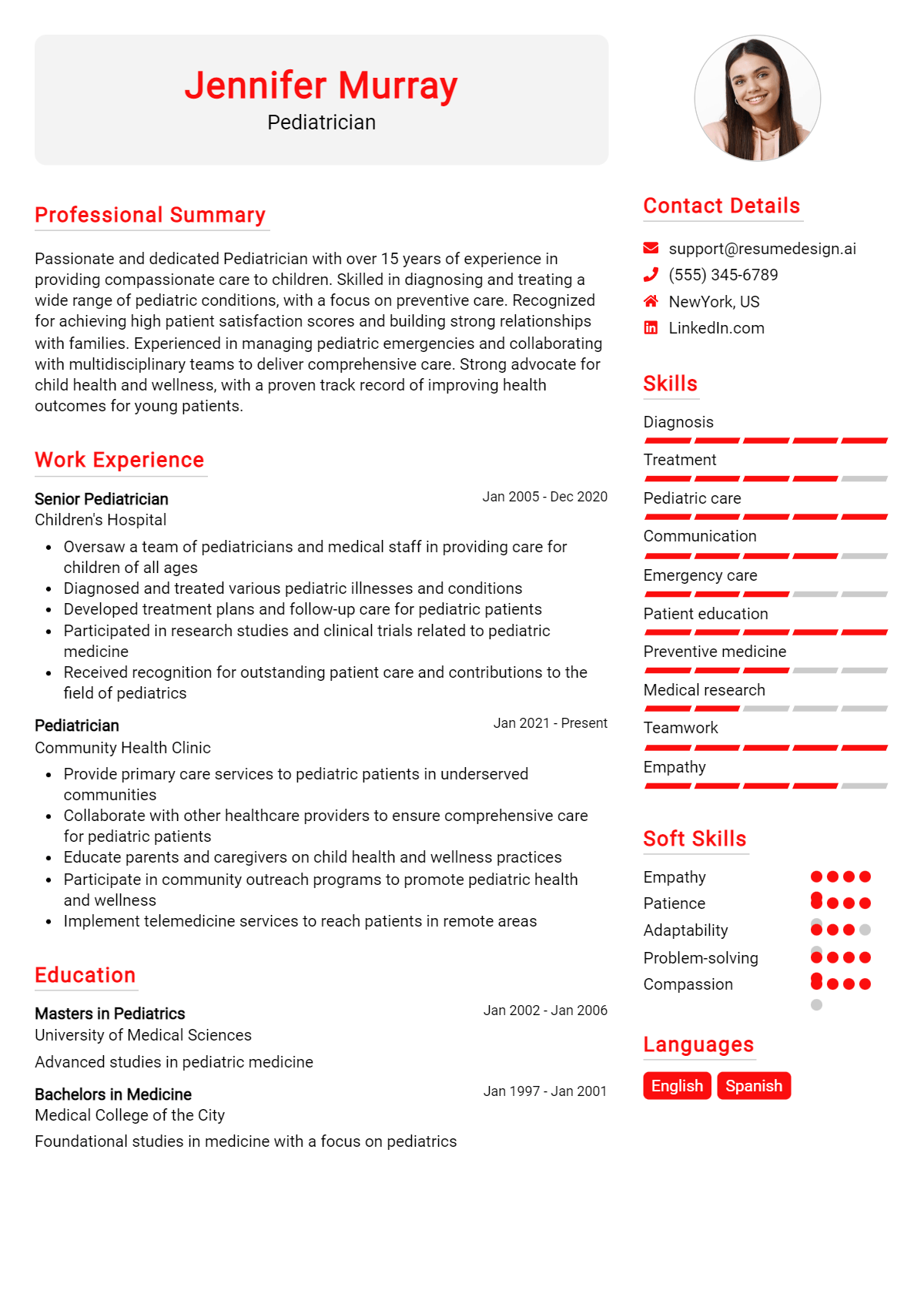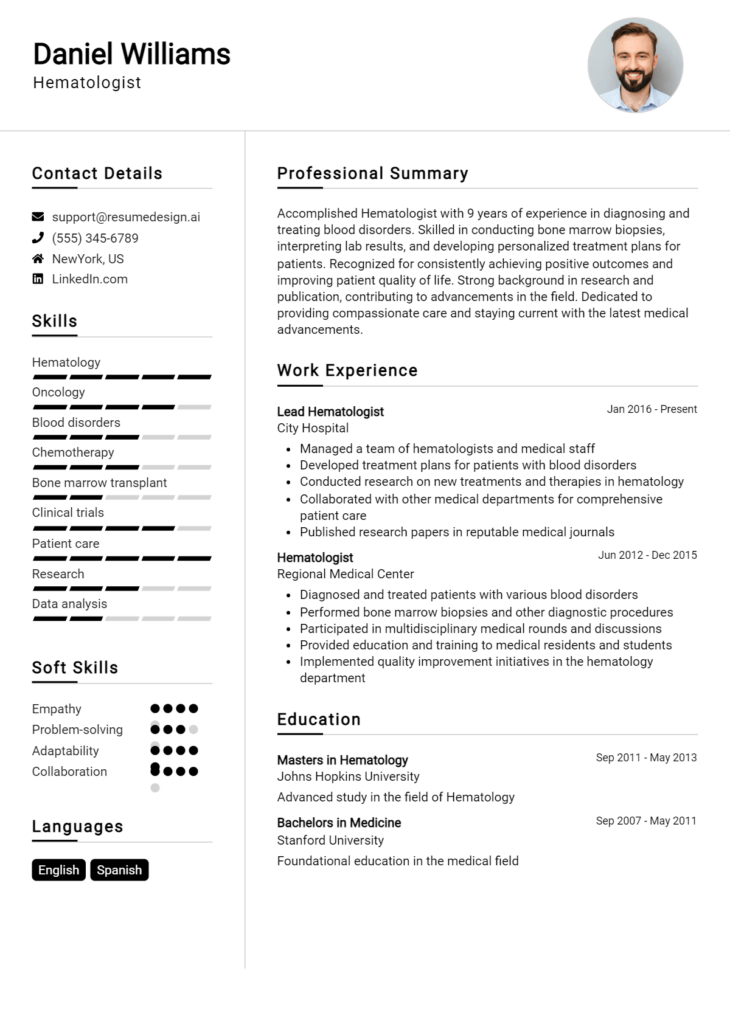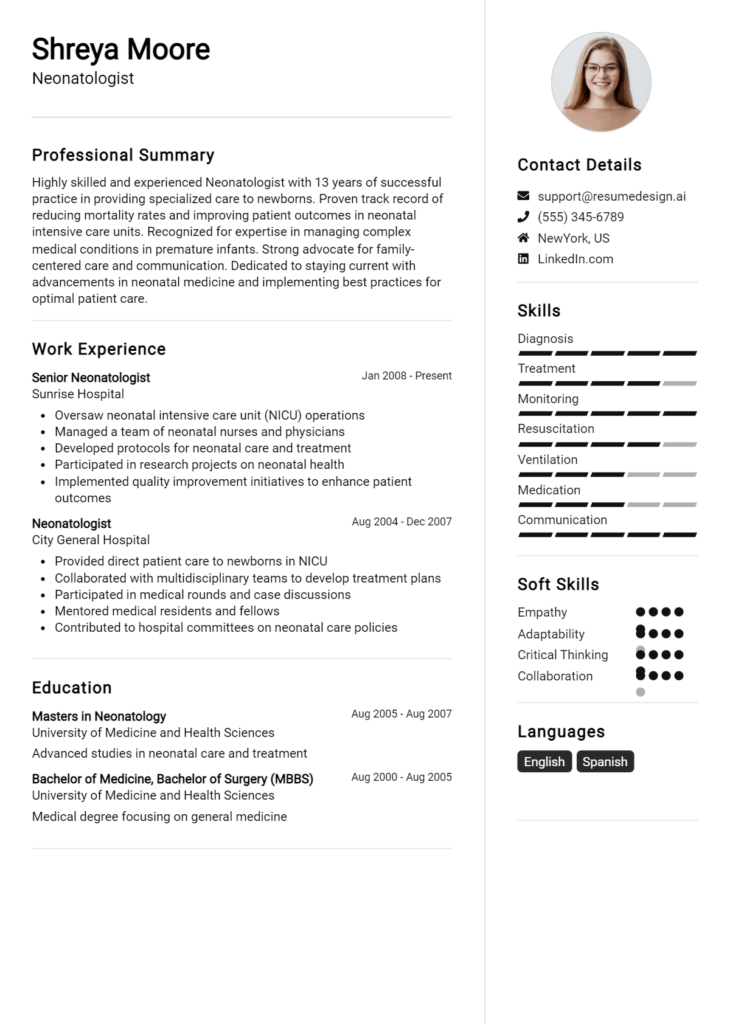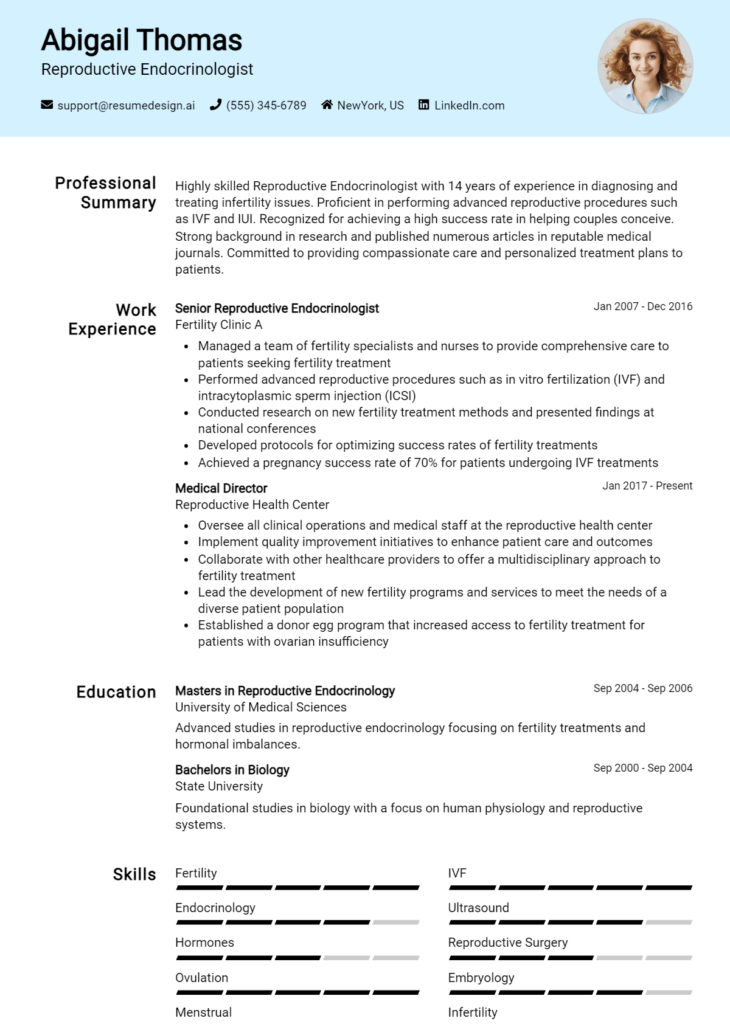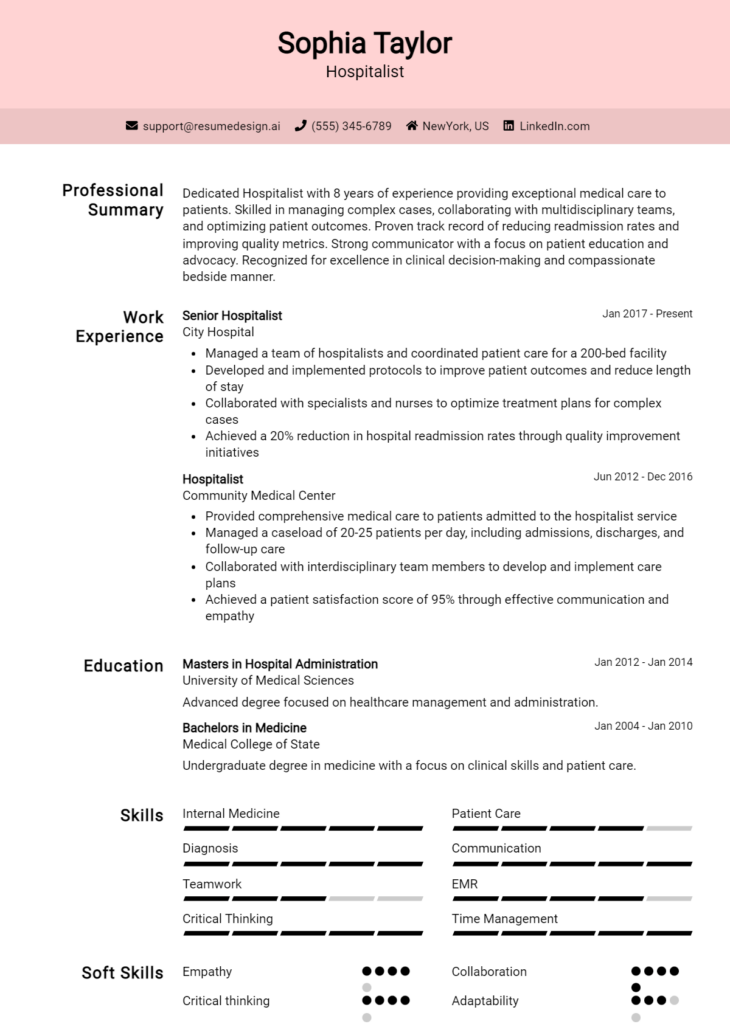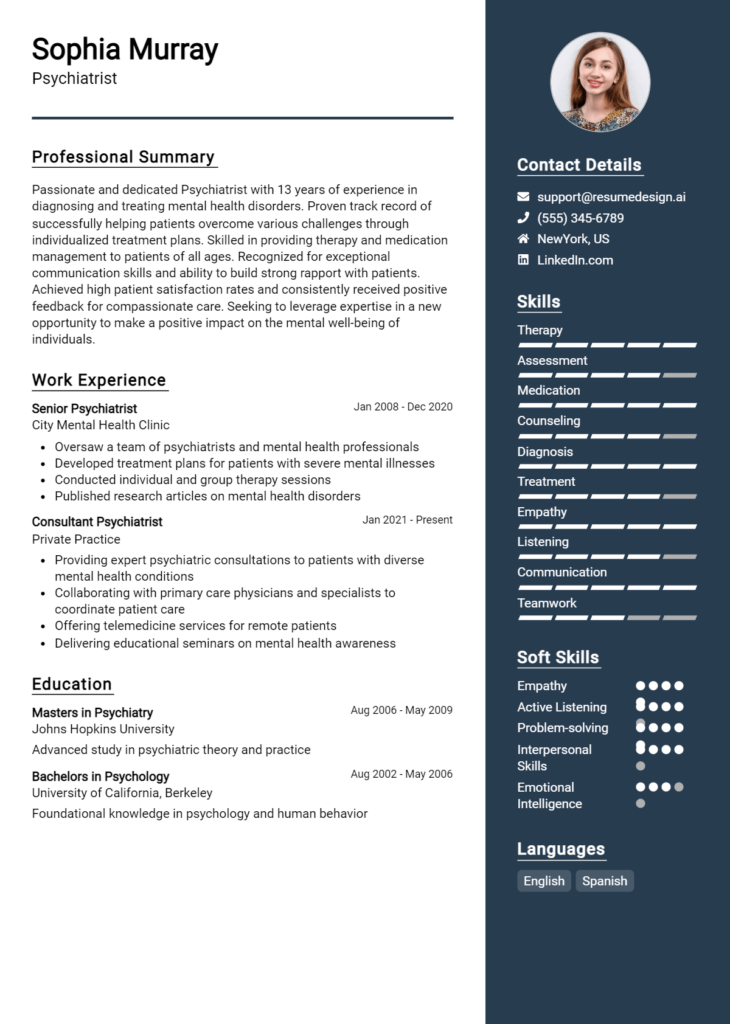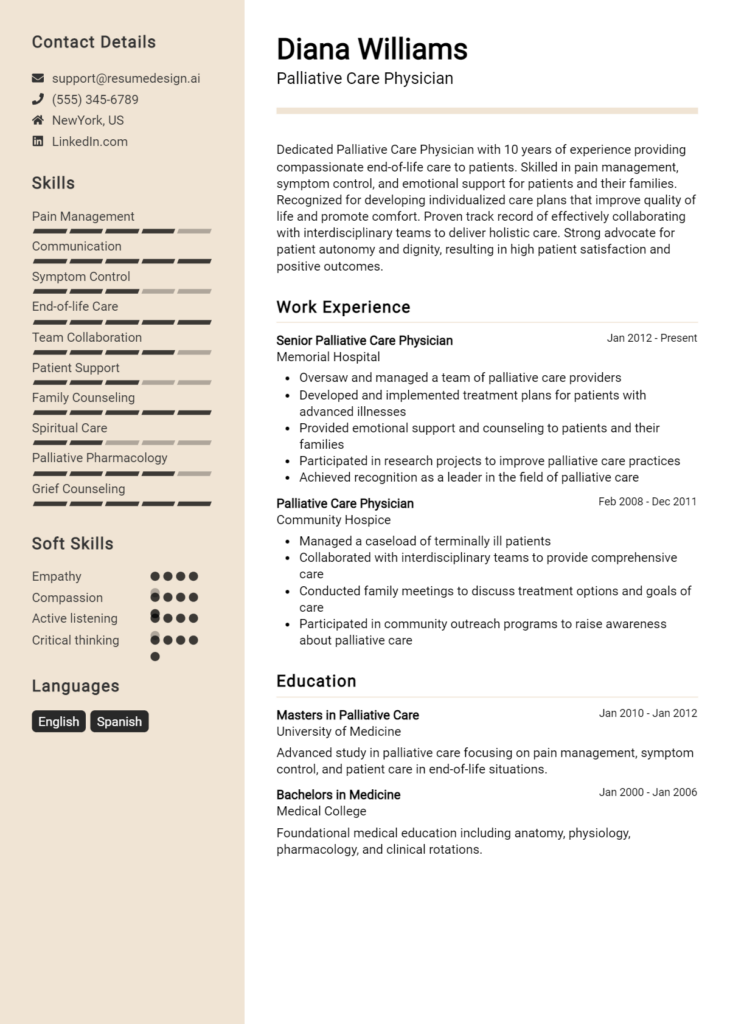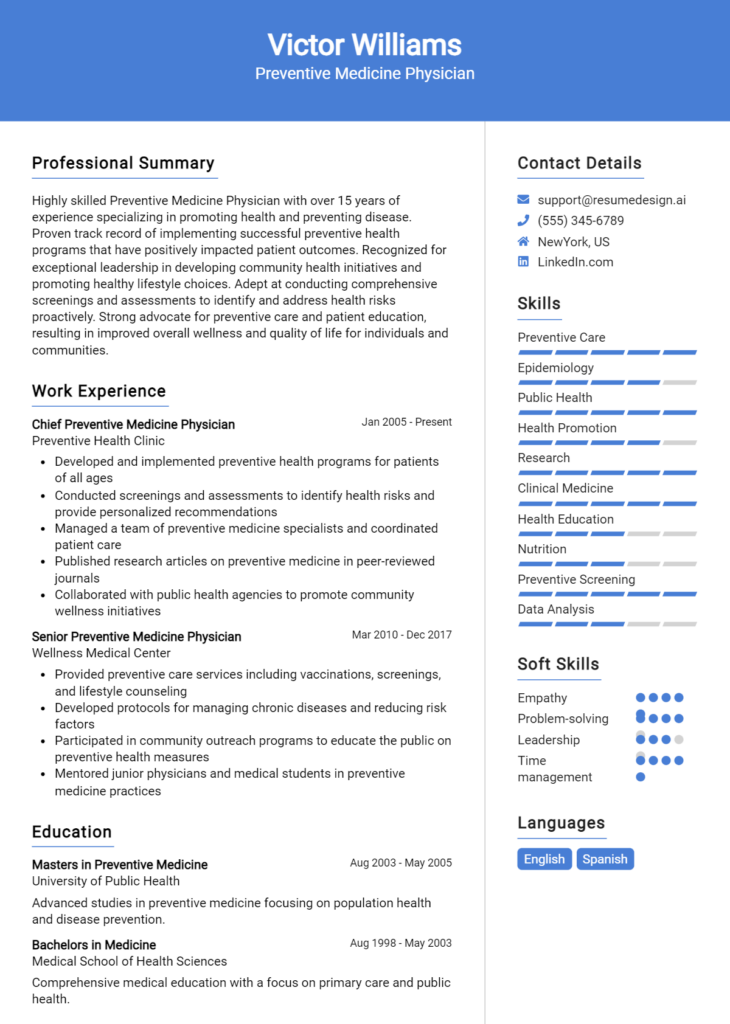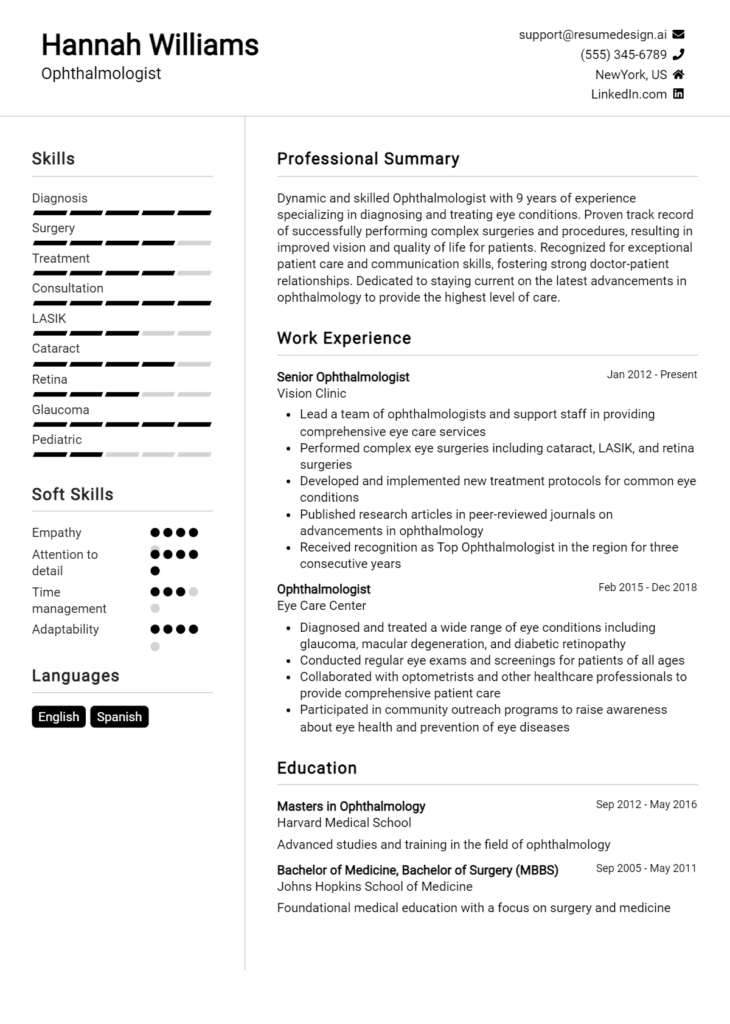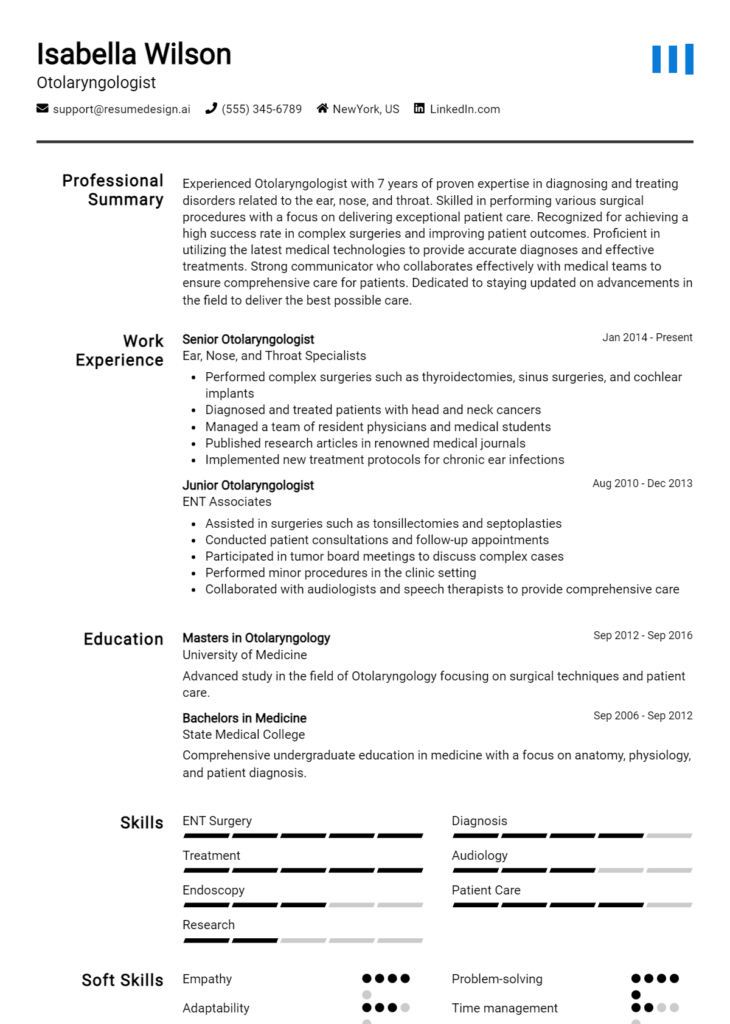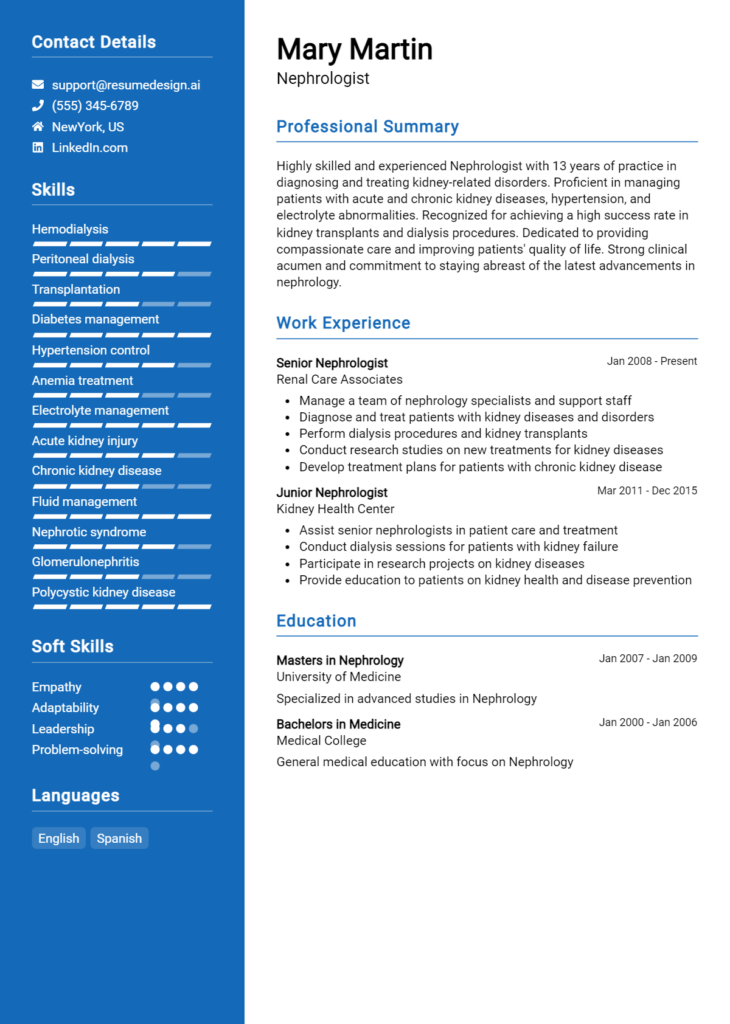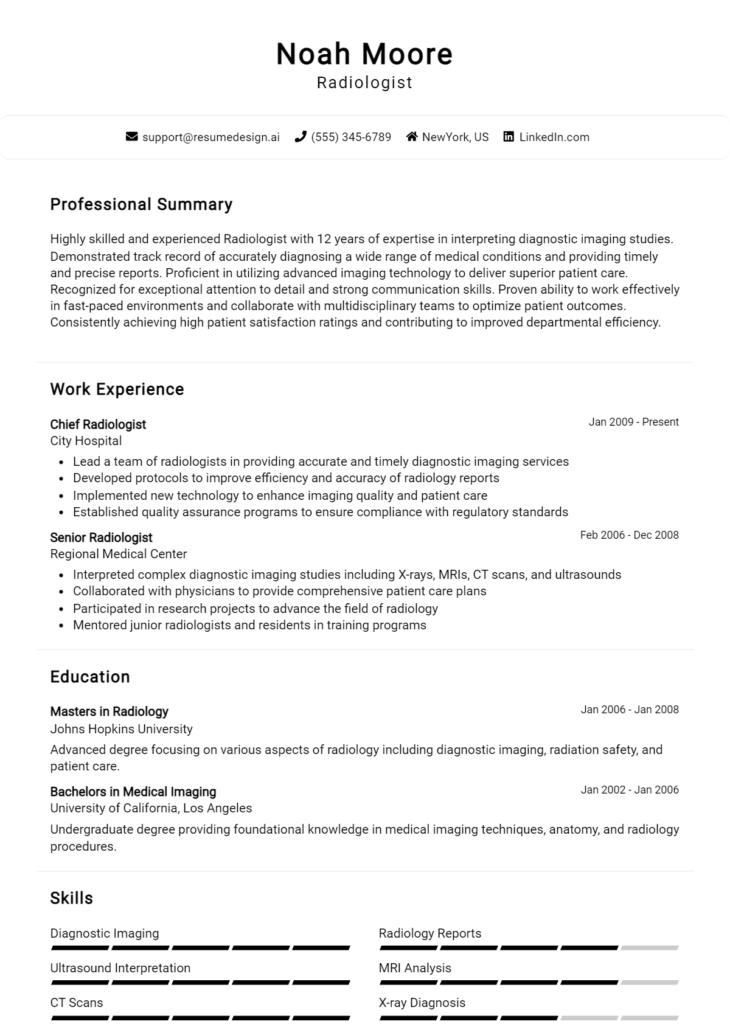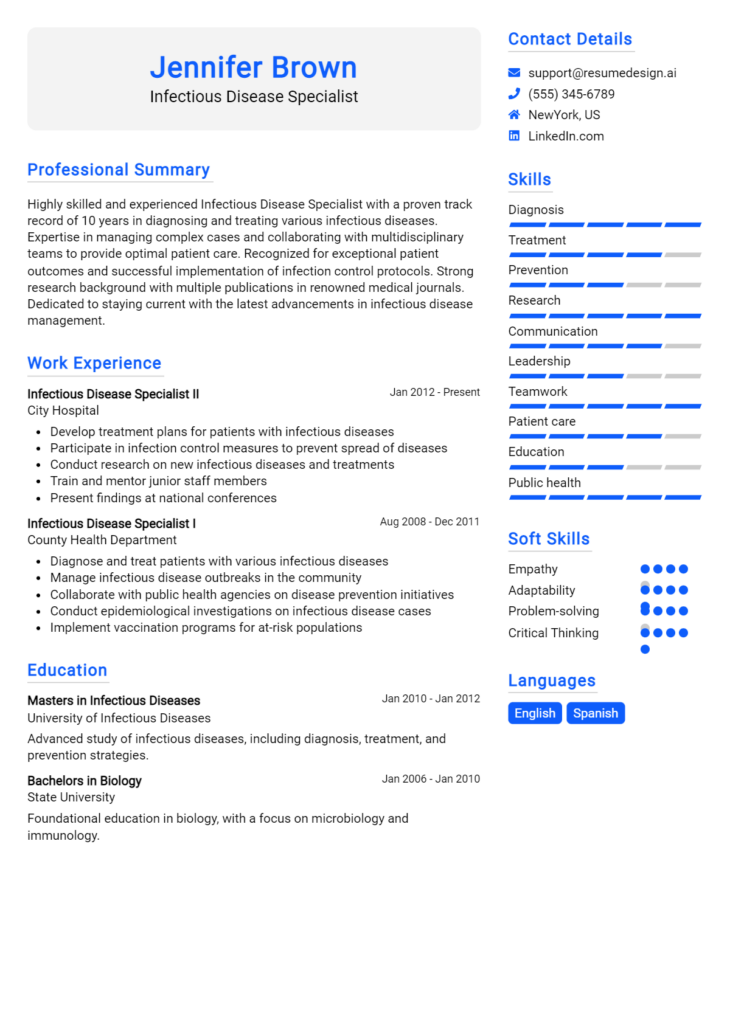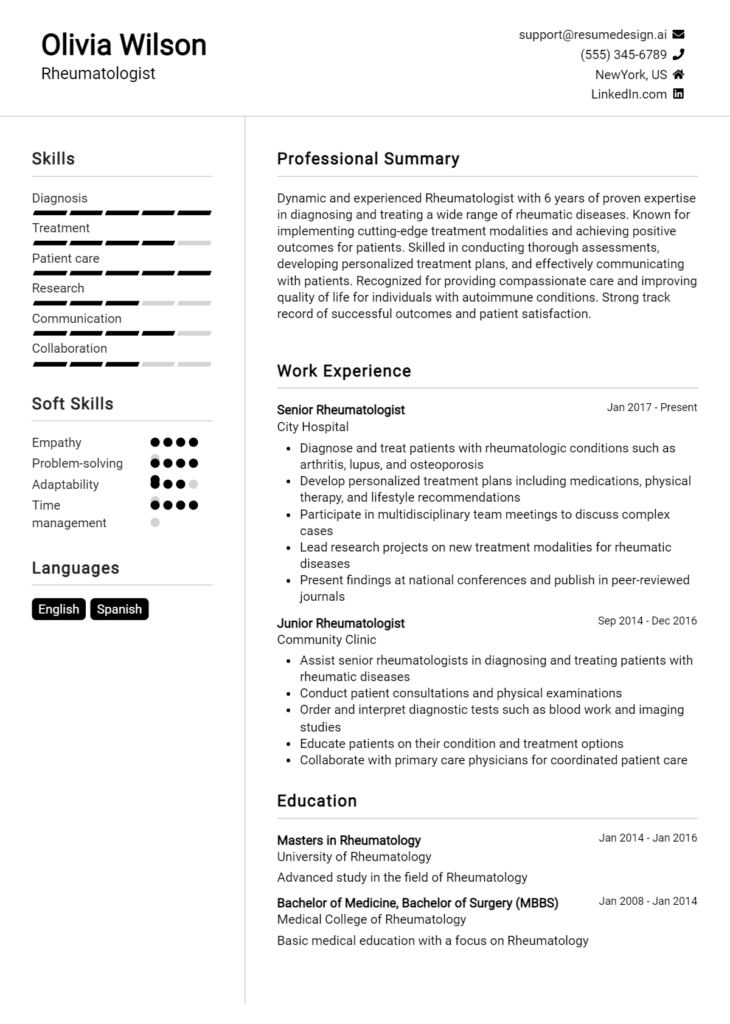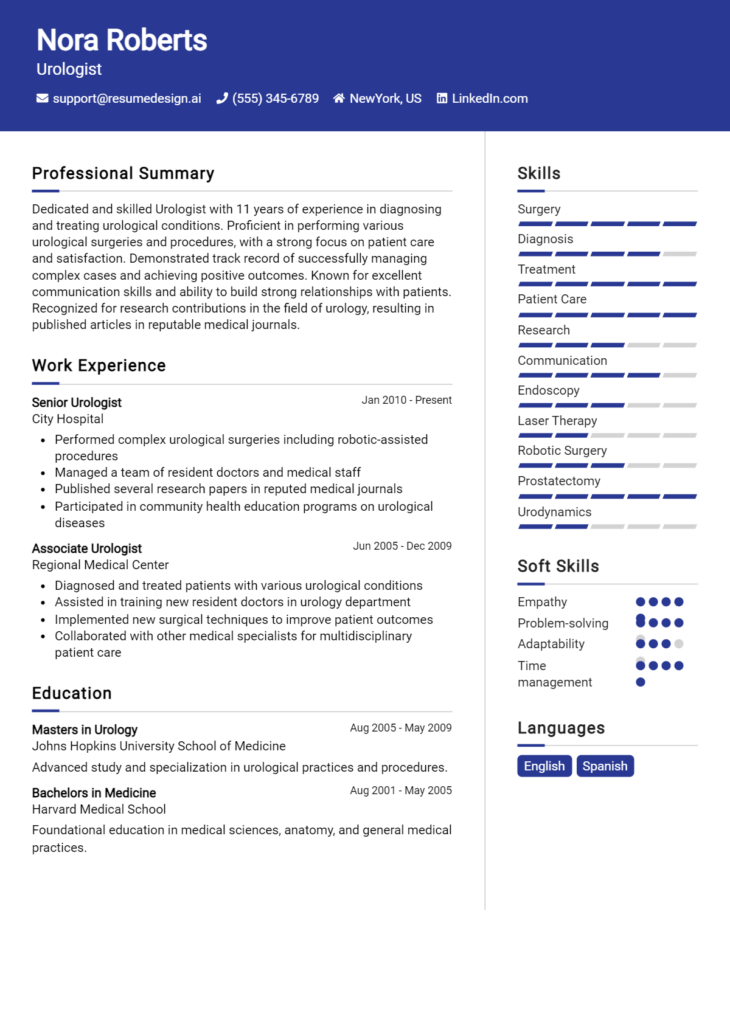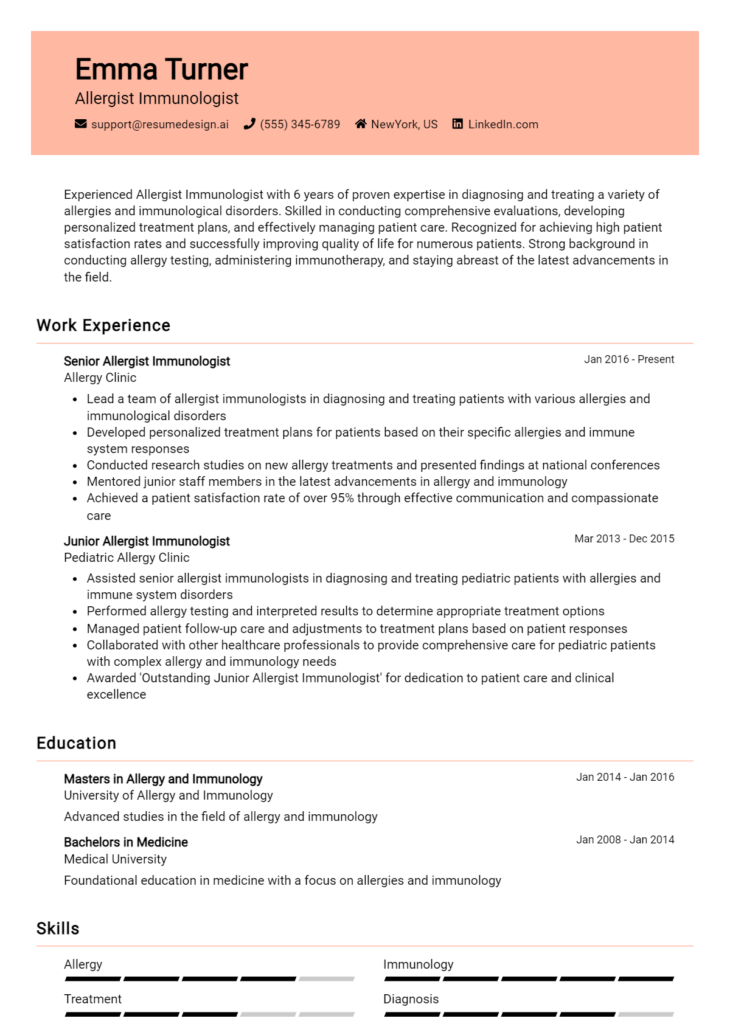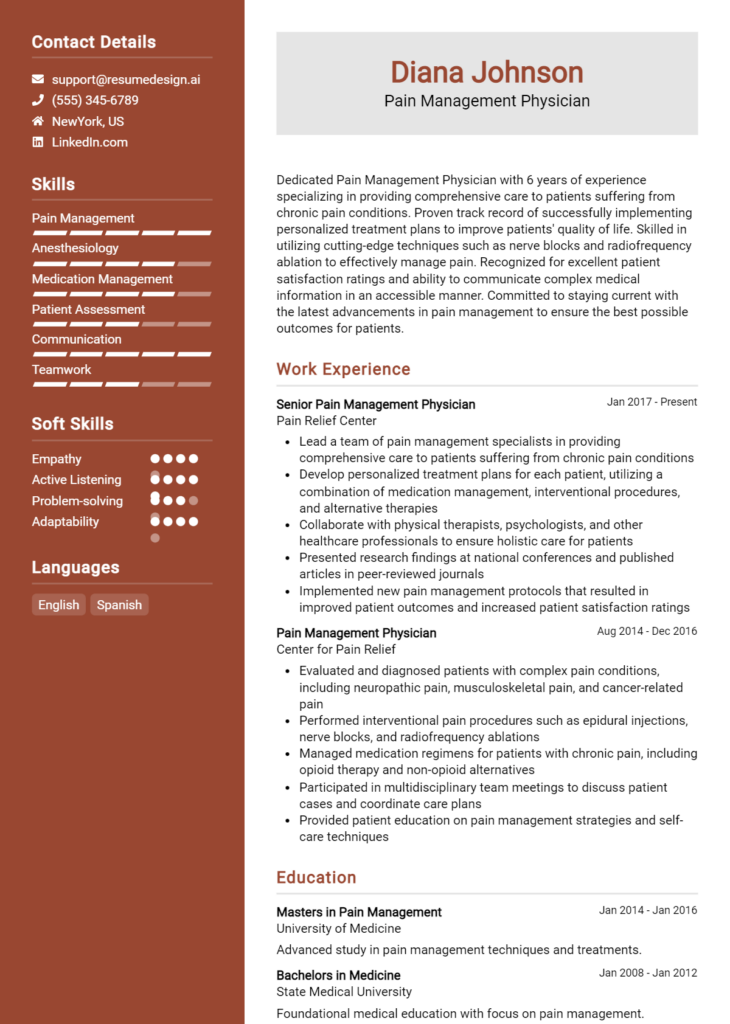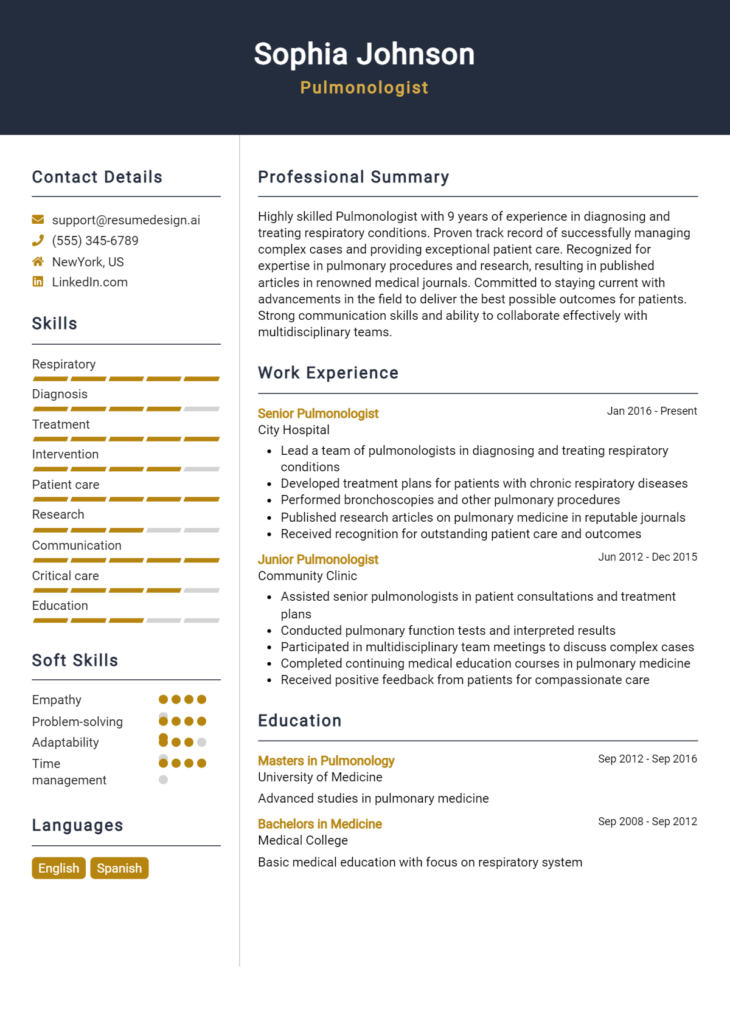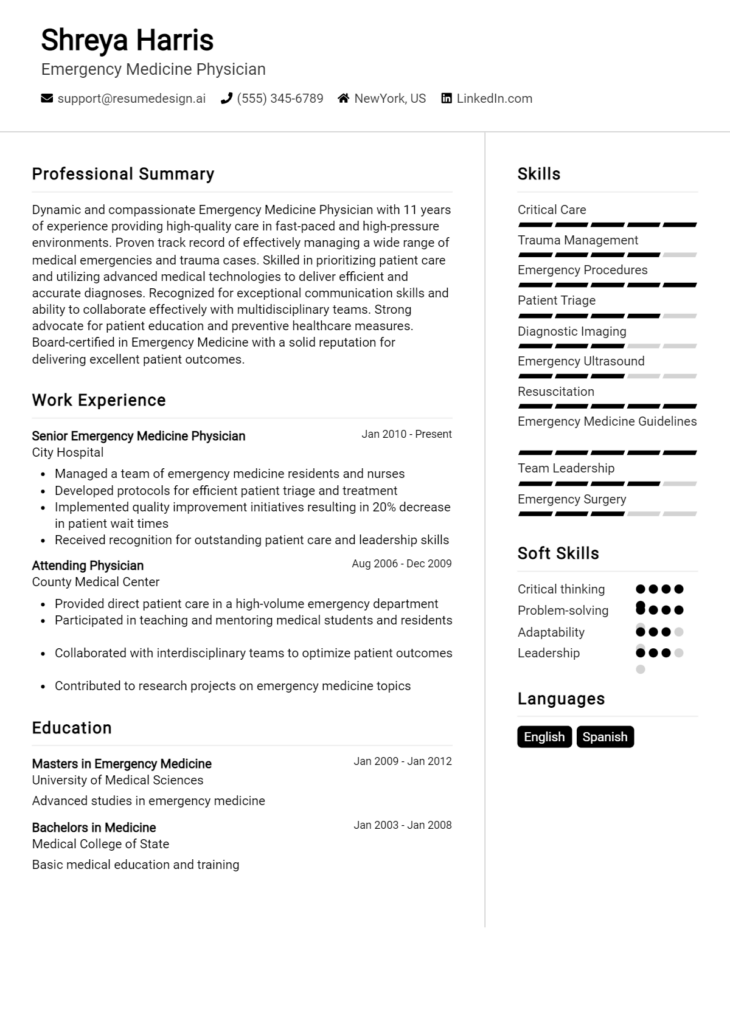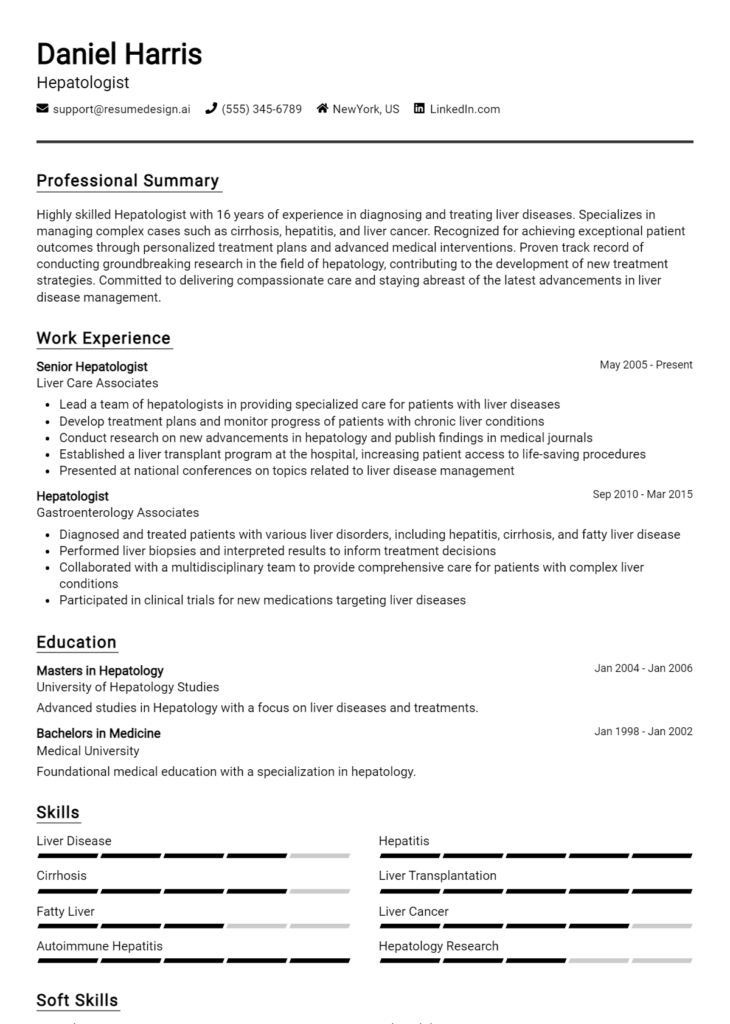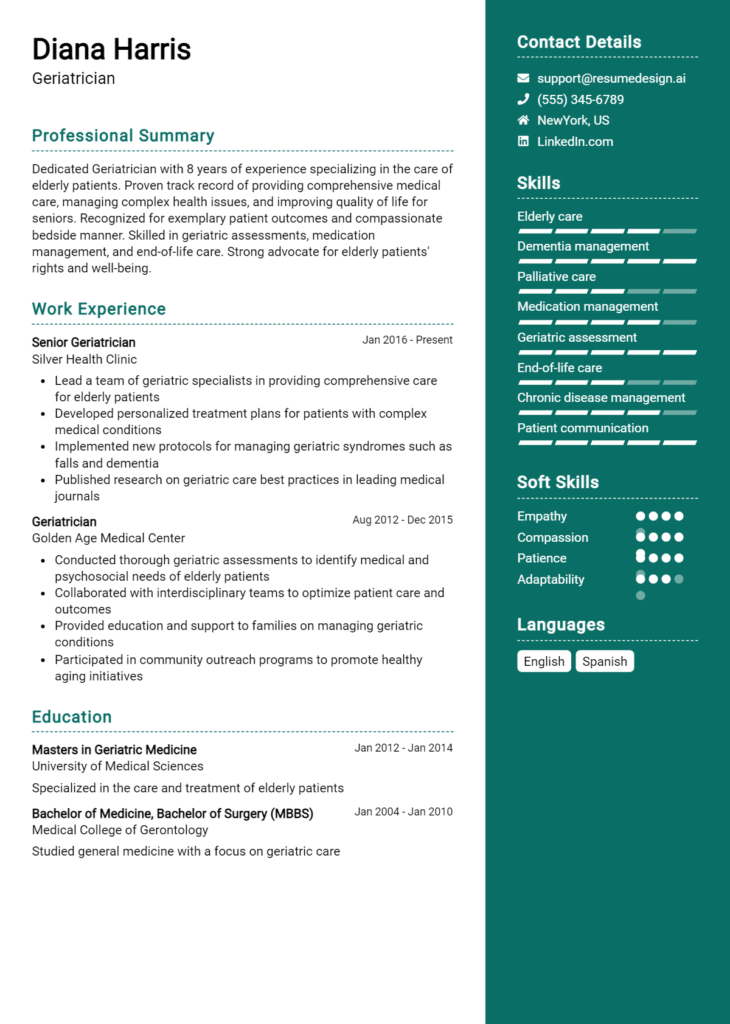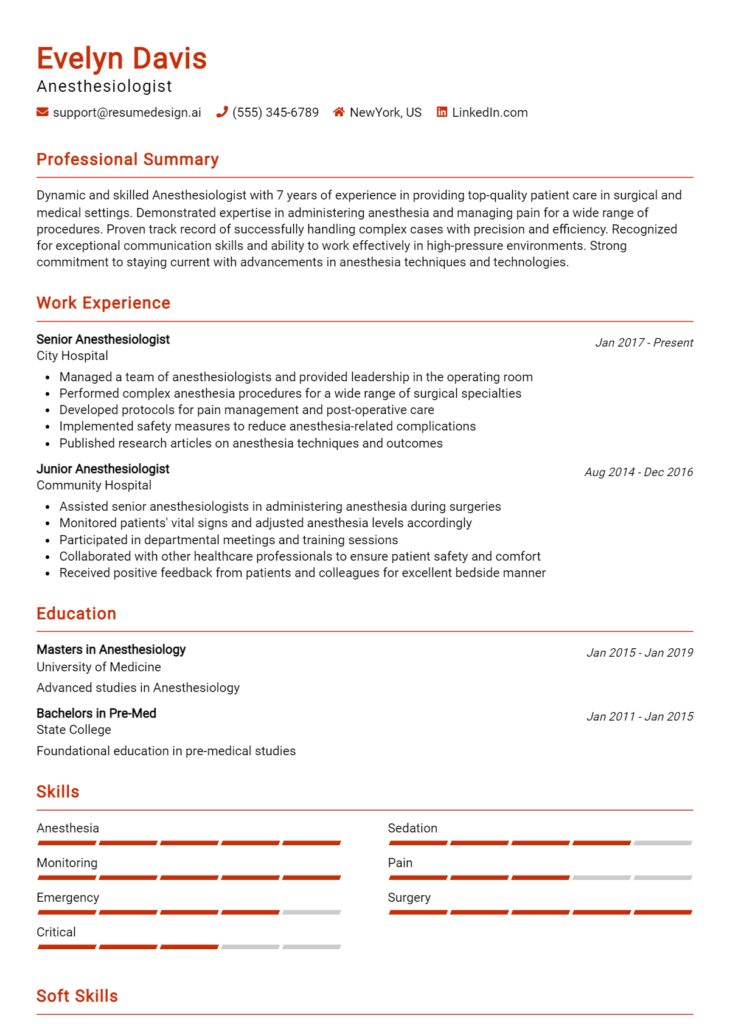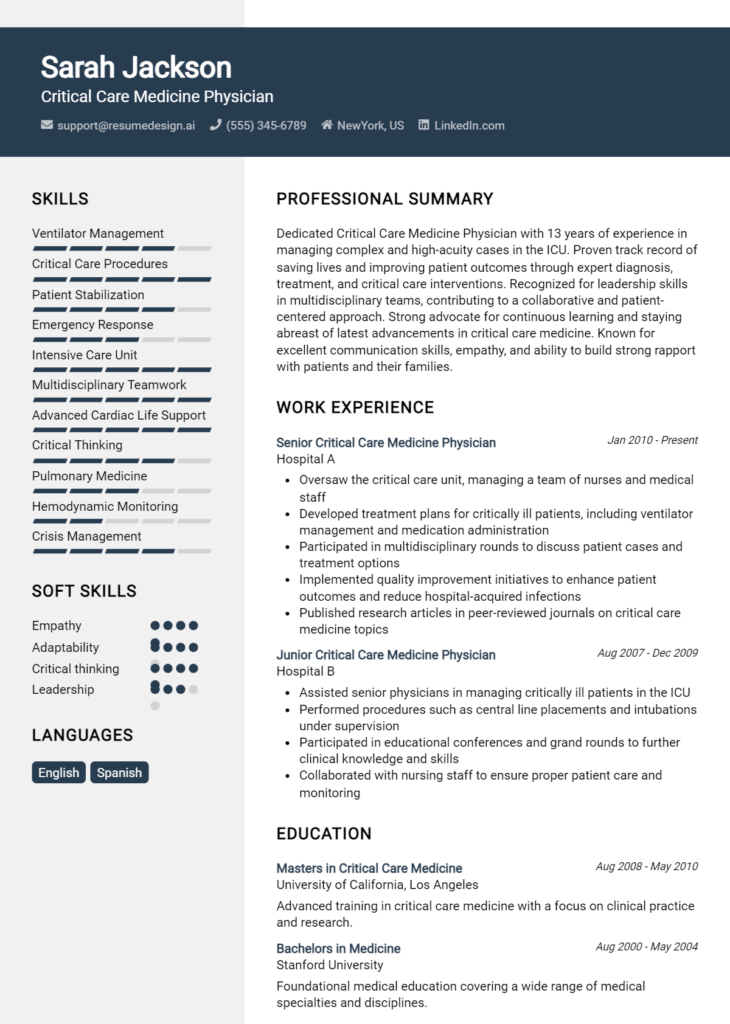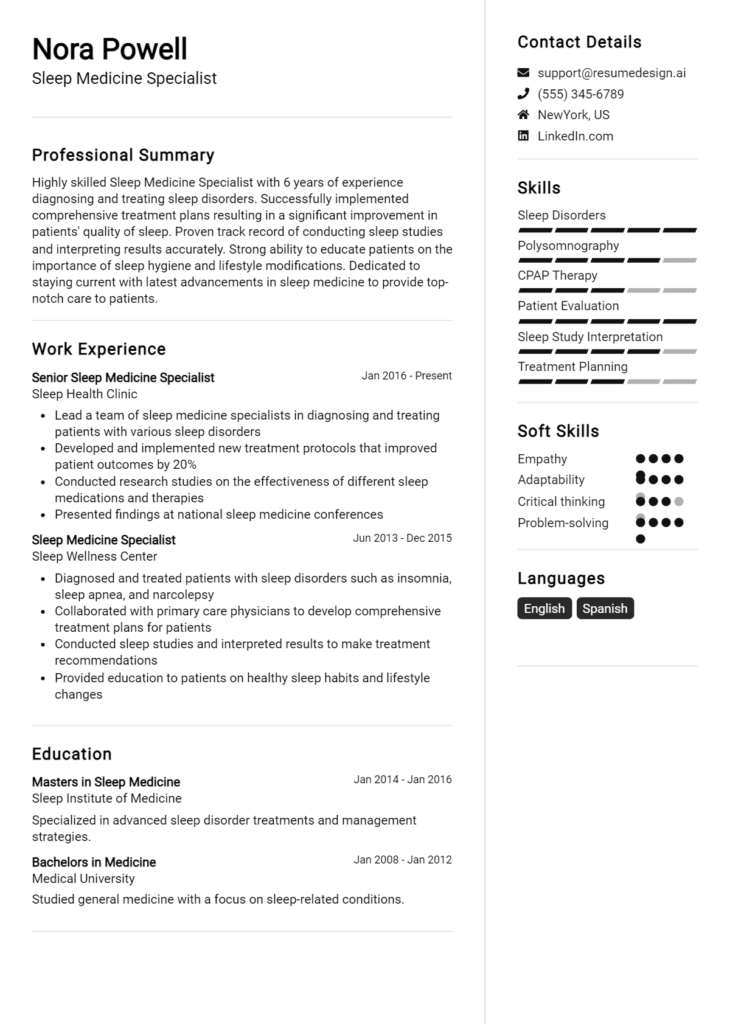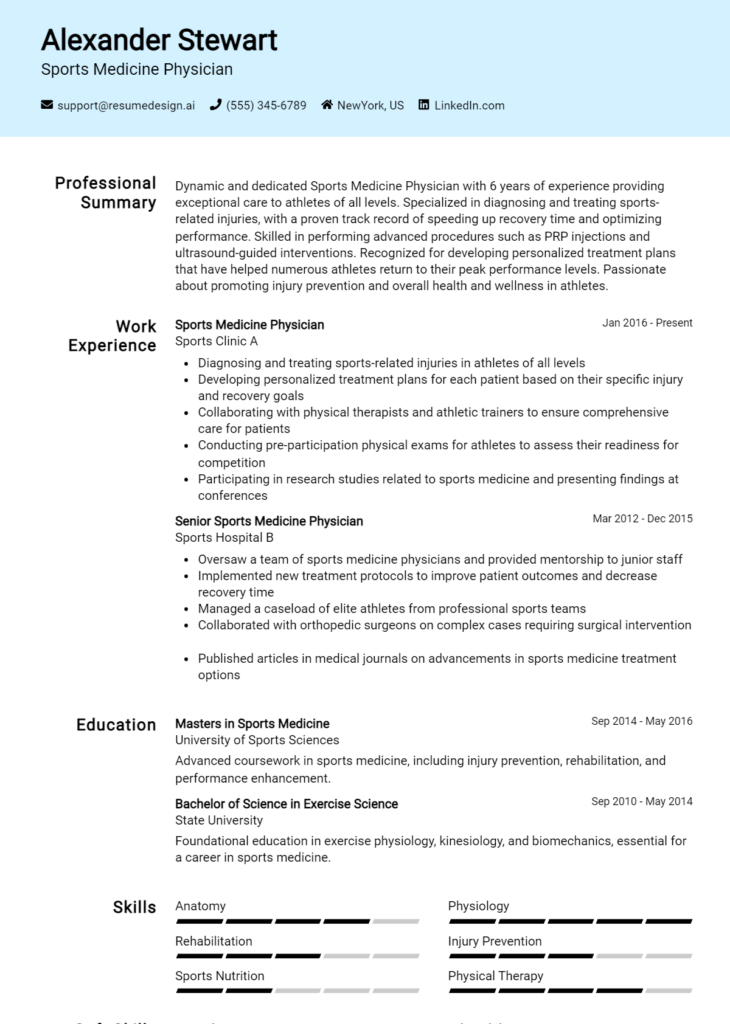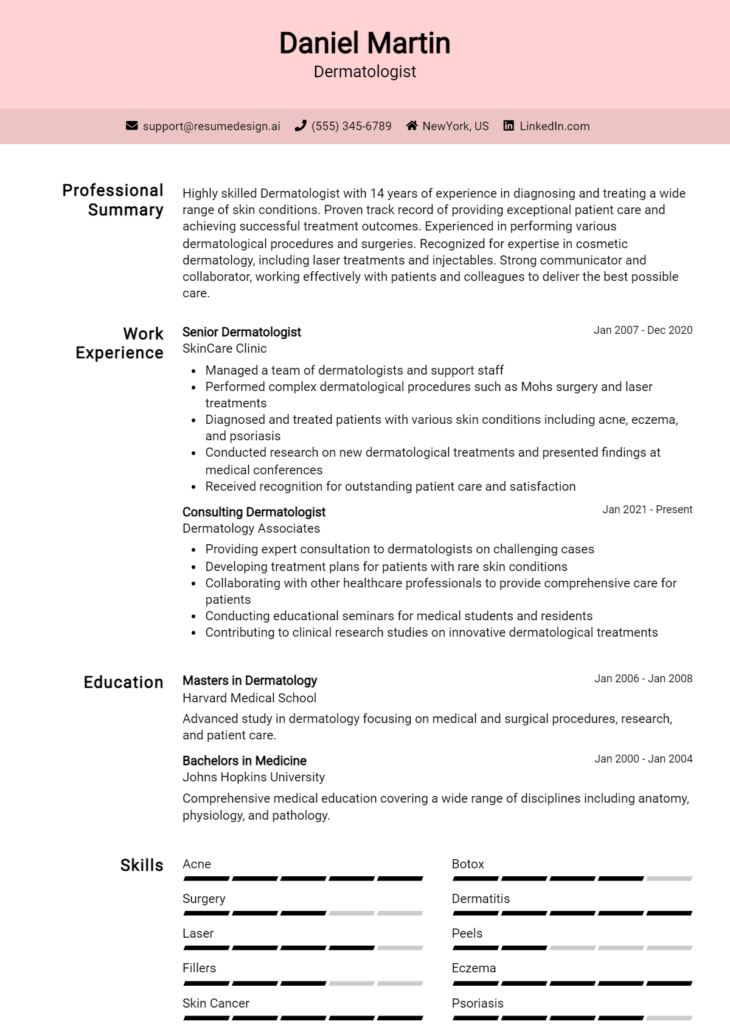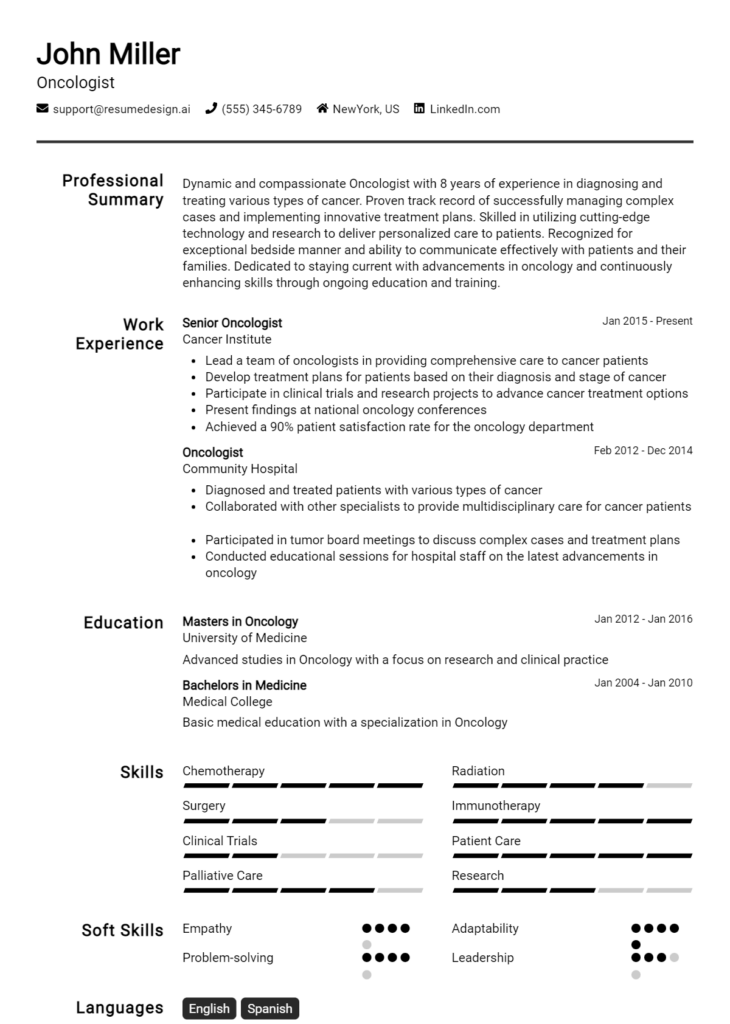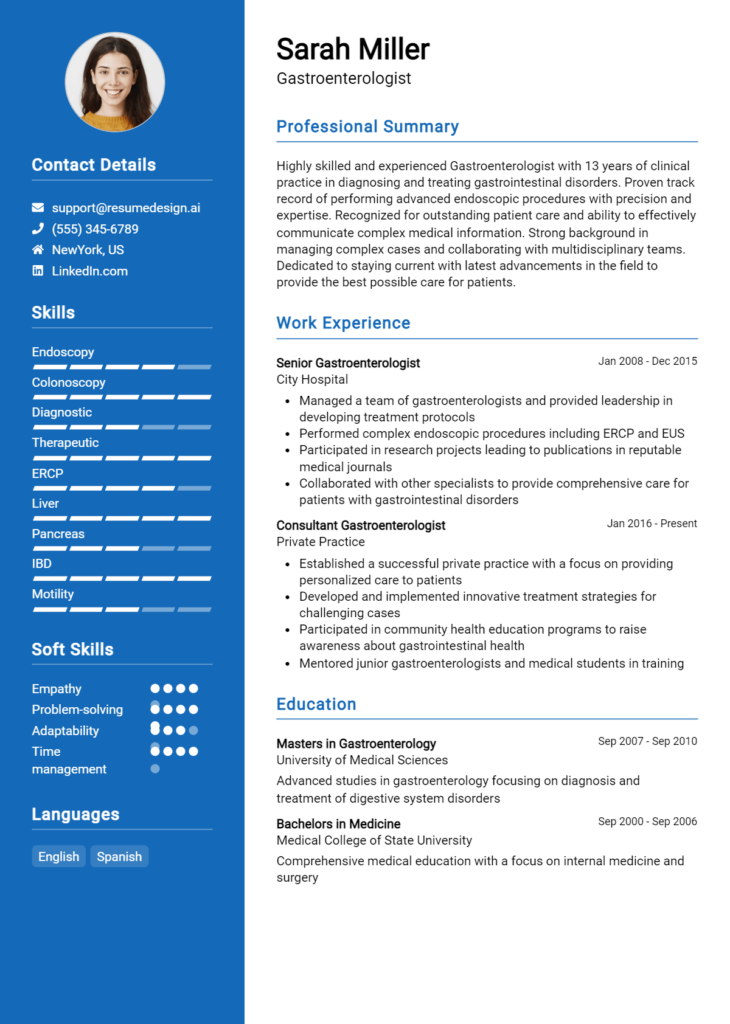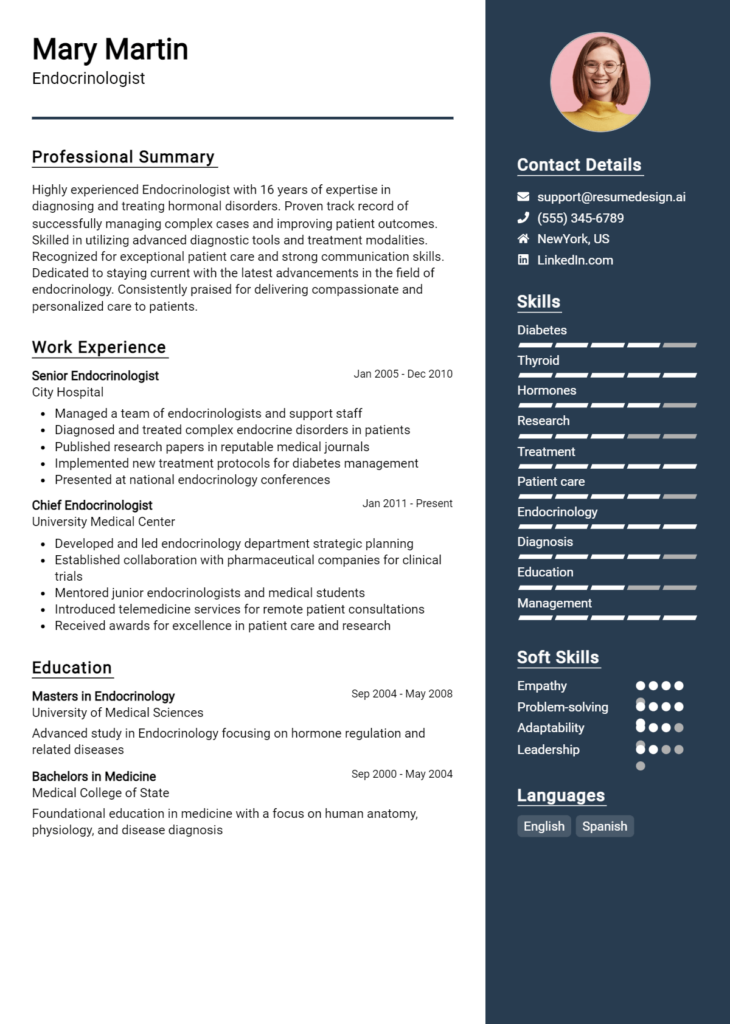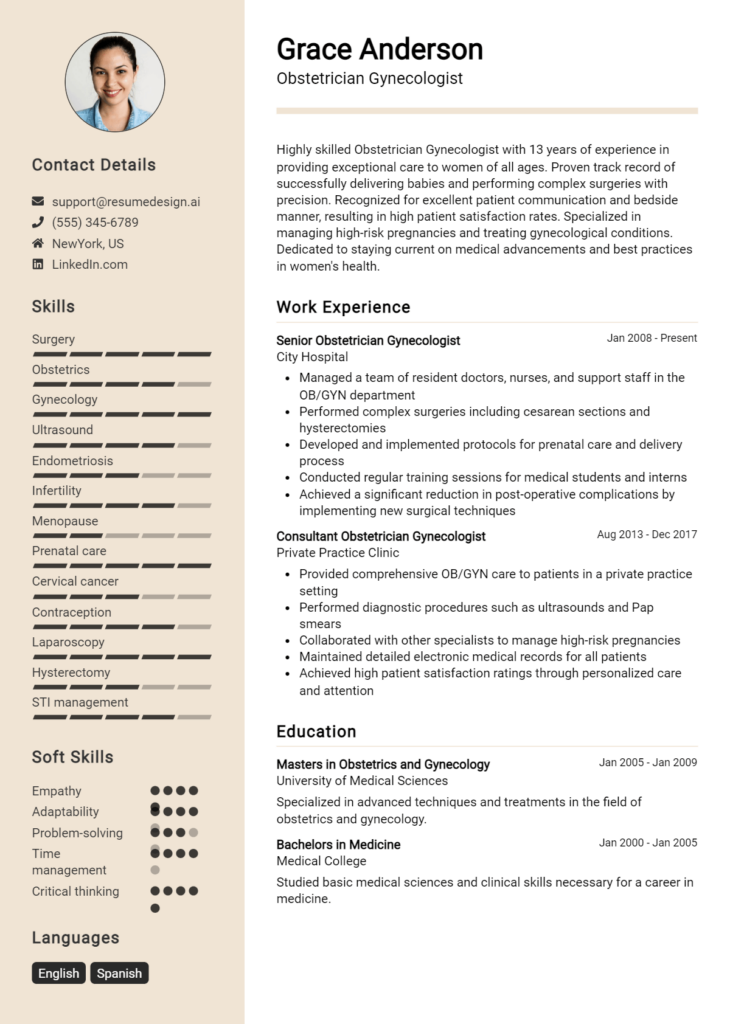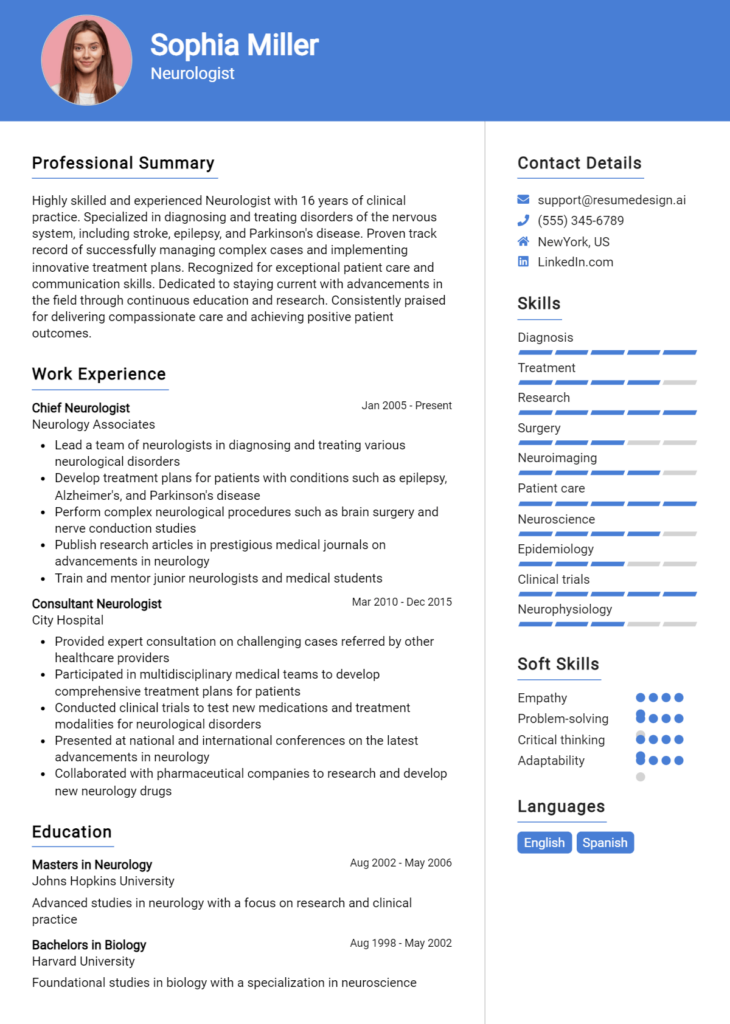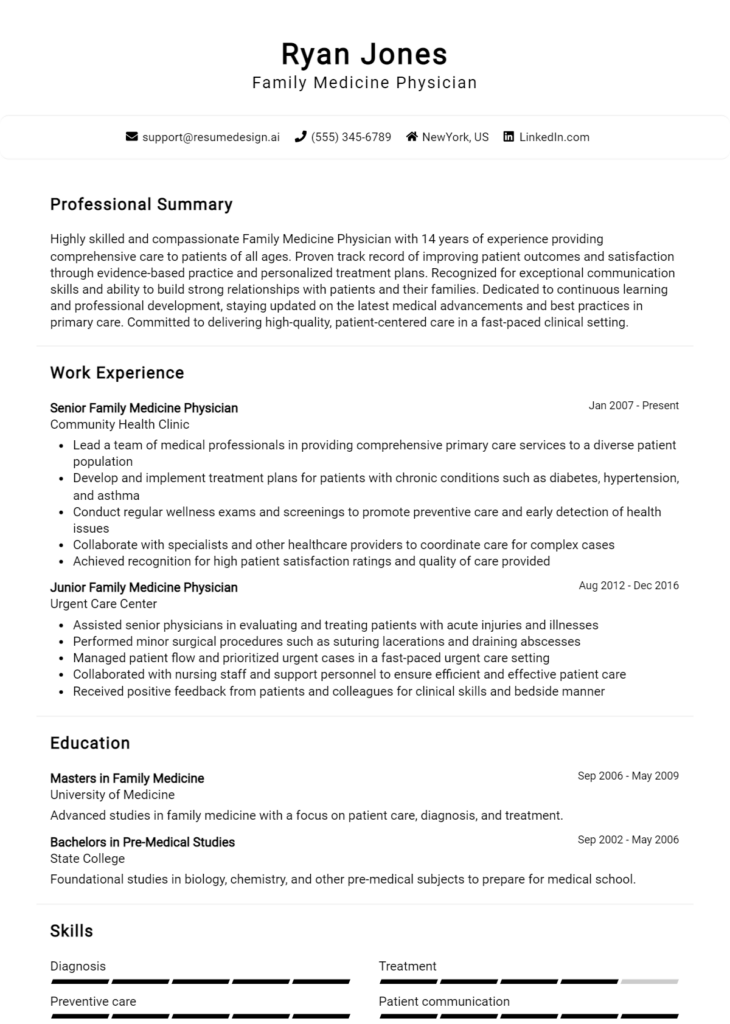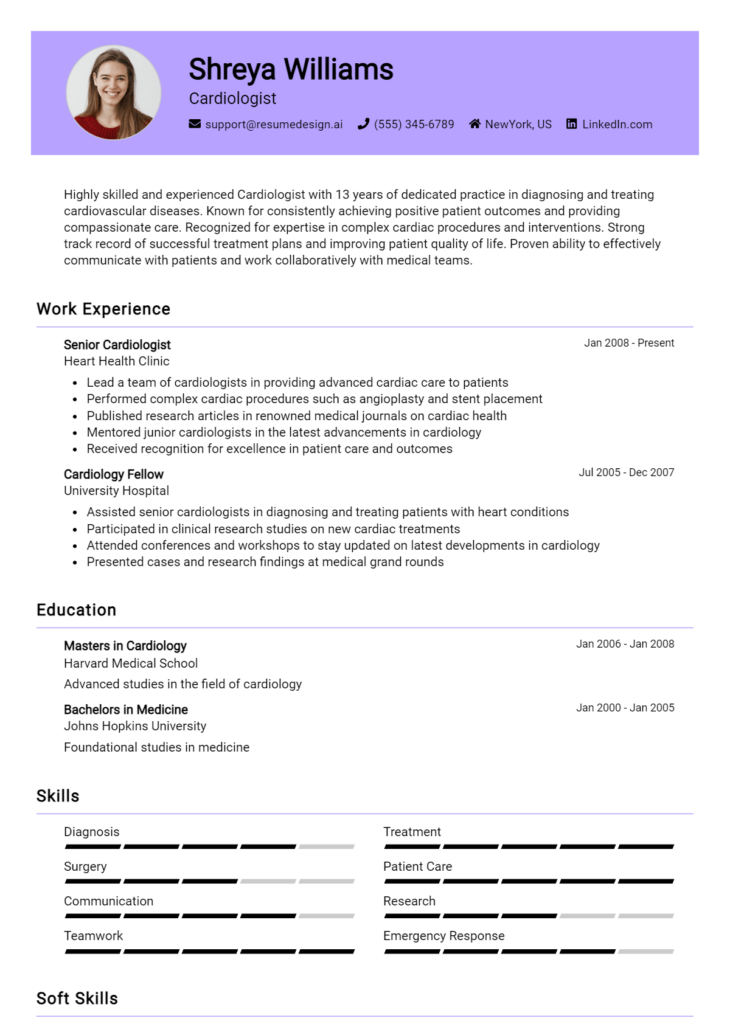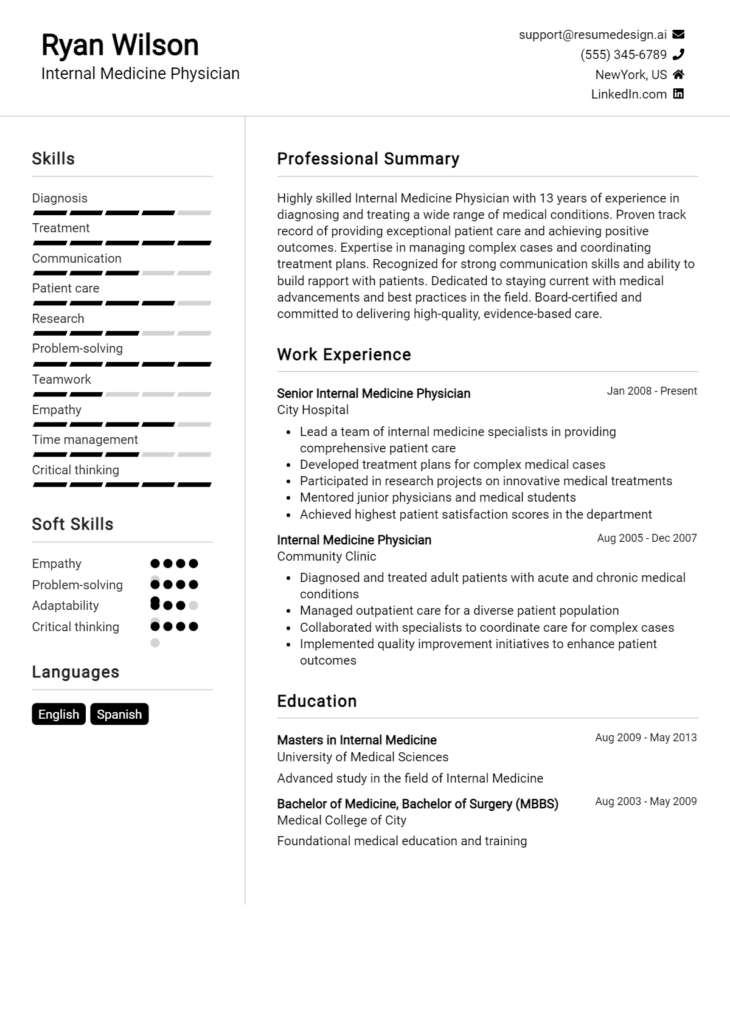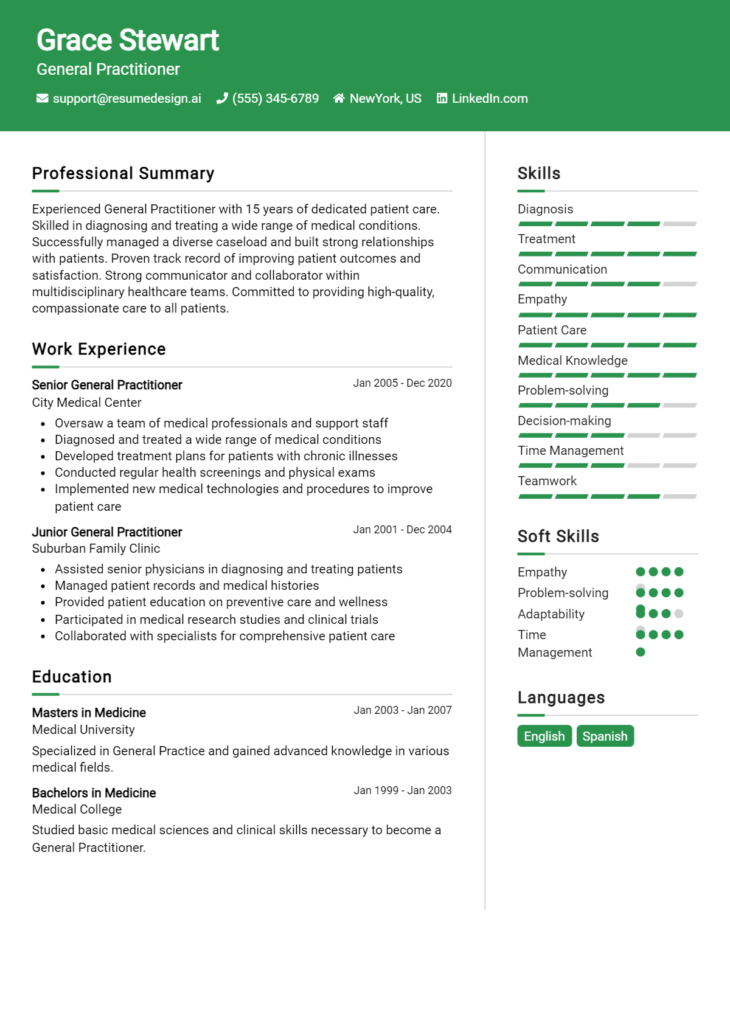Pediatrician Core Responsibilities
A Pediatrician plays a crucial role in children's health, requiring technical expertise in diagnosing and treating illnesses, operational skills for managing patient care, and problem-solving abilities to address complex health issues. This role often bridges various departments, collaborating with nurses, specialists, and parents to ensure comprehensive care. Mastering these skills contributes significantly to the organization's goals of improving pediatric health outcomes. A well-structured resume can effectively highlight these qualifications, showcasing the candidate's readiness for the position.
Common Responsibilities Listed on Pediatrician Resume
- Conduct routine check-ups and physical examinations of children.
- Diagnose and treat common childhood illnesses and injuries.
- Administer vaccinations and immunizations.
- Provide guidance on nutrition and physical fitness.
- Monitor developmental milestones and assess growth patterns.
- Collaborate with other healthcare professionals as needed.
- Educate parents about health, safety, and wellness.
- Manage medical records and maintain patient confidentiality.
- Respond to emergencies and provide immediate care when necessary.
- Stay updated on advancements in pediatric medicine.
- Advocate for children's health and well-being in the community.
High-Level Resume Tips for Pediatrician Professionals
A well-crafted resume is crucial for Pediatrician professionals, as it serves as the first impression that candidates make on potential employers. In a highly competitive field like pediatrics, your resume must effectively showcase not only your medical expertise but also your achievements and commitment to child care. A strong resume can open doors to interviews and opportunities that align with your career goals. This guide will provide practical and actionable resume tips specifically tailored for Pediatrician professionals, ensuring that you represent your skills and accomplishments in the best possible light.
Top Resume Tips for Pediatrician Professionals
- Tailor your resume to the job description by incorporating keywords and phrases from the listing to demonstrate your fit for the role.
- Showcase relevant experience by including specific details about your clinical rotations, fellowships, and any specialized training in pediatrics.
- Quantify your achievements when possible, such as the number of patients treated, improvement in patient outcomes, or efficiency in practice management.
- Highlight industry-specific skills, such as proficiency in pediatric assessments, child development knowledge, and familiarity with pediatric medical software.
- Include volunteer work or community service related to child health, as this demonstrates your passion and commitment to the field.
- Utilize a clean and professional format that is easy to read, ensuring your most important information stands out.
- Incorporate continuing education and certifications relevant to pediatrics, such as board certifications or specialized training courses.
- Consider adding a personal statement or career objective that reflects your dedication to pediatric care and your long-term professional goals.
- Proofread your resume multiple times to avoid any typos or grammatical errors that could detract from your professionalism.
By implementing these tips, Pediatrician professionals can significantly enhance their resumes, making them more attractive to potential employers. A well-structured and targeted resume not only showcases your qualifications but also increases your chances of landing a fulfilling position in the pediatric field. With the right approach, your resume can effectively demonstrate your commitment to child health and your readiness to contribute to a healthcare team.
Why Resume Headlines & Titles are Important for Pediatrician
In the competitive field of pediatrics, a well-crafted resume headline or title is paramount for standing out among numerous applicants. A strong headline can immediately grab the attention of hiring managers, succinctly summarizing a candidate's key qualifications and professional identity in a single impactful phrase. This brief yet powerful statement should be concise, relevant, and directly related to the pediatrician role being applied for, helping to set the tone for the rest of the resume and making a lasting first impression.
Best Practices for Crafting Resume Headlines for Pediatrician
- Be concise: Aim for a headline that is brief and to the point, ideally no longer than one or two lines.
- Make it role-specific: Tailor your headline to the pediatrician position you are applying for, reflecting relevant skills and experiences.
- Highlight key strengths: Focus on your most significant accomplishments, skills, or certifications that are pertinent to pediatrics.
- Use impactful language: Employ strong action verbs and descriptive adjectives to create a compelling headline.
- Avoid jargon: Ensure that your headline is easily understood and avoids overly technical language that may confuse the reader.
- Include relevant keywords: Incorporate industry-specific terms that align with the job description to pass applicant tracking systems.
- Showcase your passion: Infuse your headline with enthusiasm for working with children and families, reflecting your dedication to pediatric care.
- Keep it professional: Ensure that the tone remains formal and suitable for a medical profession.
Example Resume Headlines for Pediatrician
Strong Resume Headlines
Compassionate Pediatrician with 10+ Years of Experience in Child Healthcare
Board-Certified Pediatrician Specializing in Preventive Care and Child Development
Dedicated Pediatrician Committed to Enhancing Child Health Through Evidence-Based Practices
Weak Resume Headlines
Pediatrician Looking for a Job
Experienced Doctor in Healthcare
The strong headlines are effective because they clearly convey the candidate’s qualifications, experience, and dedication to pediatric care, immediately capturing the attention of hiring managers. In contrast, the weak headlines fail to impress due to their vagueness and lack of specificity; they do not showcase any unique qualifications or enthusiasm, making it difficult for hiring managers to discern the candidate’s suitability for the pediatrician role.
Writing an Exceptional Pediatrician Resume Summary
A well-crafted resume summary is crucial for Pediatricians looking to make an impactful first impression on hiring managers. This concise statement serves as a snapshot of a candidate's qualifications, capturing key skills, relevant experience, and notable accomplishments in the field of pediatric medicine. A strong summary not only grabs attention but also sets the tone for the rest of the resume by aligning the candidate's expertise with the specific requirements of the job. Tailoring this section to the particular role applied for ensures that the Pediatrician stands out among other candidates, demonstrating their suitability for the position in a few impactful sentences.
Best Practices for Writing a Pediatrician Resume Summary
- Quantify Achievements: Use numbers to highlight your impact, such as patient satisfaction rates or the number of successful treatments.
- Focus on Relevant Skills: Emphasize skills that are directly applicable to pediatric care, such as communication, empathy, and clinical expertise.
- Tailor the Summary: Customize your summary for each job application, reflecting the specific requirements and values of the employer.
- Keep it Concise: Aim for 2-4 sentences that convey your qualifications without overwhelming the reader.
- Highlight Specializations: Mention any areas of specialization, such as pediatric cardiology or developmental disorders, to showcase expertise.
- Use Action Verbs: Start sentences with strong action verbs to convey an active and results-oriented approach.
- Showcase Professional Development: Include any certifications, licenses, or advanced training that enhances your qualifications.
- Incorporate Keywords: Use industry-specific keywords from the job description to improve visibility in applicant tracking systems.
Example Pediatrician Resume Summaries
Strong Resume Summaries
Compassionate Pediatrician with over 10 years of experience in providing high-quality medical care to children. Achieved a 95% patient satisfaction rate through effective communication and personalized treatment plans.
Board-Certified Pediatrician specializing in developmental disorders, with a track record of successfully diagnosing and managing conditions for over 200+ patients annually, resulting in improved developmental outcomes.
Dedicated Pediatrician with expertise in emergency care and a proven ability to reduce patient wait times by 30% through efficient workflow management and team collaboration in a busy urban clinic.
Weak Resume Summaries
Pediatrician with experience in working with kids and families. I am dedicated and hardworking.
Experienced doctor looking for a position in a pediatric clinic. I have a passion for helping children.
The examples above illustrate the contrast between strong and weak resume summaries. Strong summaries effectively highlight specific skills, quantifiable achievements, and relevant experience, making them impactful and tailored to the role. In contrast, weak summaries lack detail and specificity, relying on vague statements that fail to demonstrate the candidate's qualifications or unique contributions. By focusing on measurable outcomes and aligning with job descriptions, candidates can significantly enhance their chances of being noticed by hiring managers.
Work Experience Section for Pediatrician Resume
The work experience section of a Pediatrician resume is critical as it provides potential employers with a comprehensive view of the candidate’s clinical and technical skills, leadership capabilities, and commitment to delivering high-quality healthcare services. This section not only highlights practical experience in diagnosing and treating pediatric patients but also reflects the ability to manage healthcare teams effectively. By quantifying achievements and aligning past experiences with industry standards, candidates can demonstrate their expertise and readiness to contribute positively to a healthcare facility.
Best Practices for Pediatrician Work Experience
- Highlight relevant clinical skills such as patient assessment, diagnosis, and treatment methodologies.
- Quantify achievements with specific metrics, such as patient satisfaction scores or reduction in wait times.
- Emphasize collaboration with multidisciplinary teams to improve patient care and outcomes.
- Detail leadership roles in managing pediatric departments or mentoring junior staff.
- Include continuing education and training that enhance technical expertise in pediatrics.
- Use action verbs to describe responsibilities and achievements, making the experience more dynamic.
- Tailor the experience section to align with the specific requirements of the job being applied for.
- Focus on impactful projects that demonstrate innovation in patient care or operational efficiency.
Example Work Experiences for Pediatrician
Strong Experiences
- Led a pediatric health initiative that resulted in a 30% increase in immunization rates within the community over two years.
- Collaborated with a team of specialists to develop a comprehensive care plan for children with chronic illnesses, improving overall patient satisfaction scores by 25%.
- Managed a pediatric practice with a focus on preventive care, achieving a reduction in emergency room visits by 20% through effective patient education.
- Trained and mentored five resident physicians, enhancing their clinical skills and improving their board examination pass rates by 15%.
Weak Experiences
- Worked with children and families in a hospital setting.
- Responsible for various tasks in the pediatric department.
- Participated in team meetings and contributed to discussions.
- Provided care to pediatric patients as needed.
The examples provided showcase a clear distinction between strong and weak experiences. Strong experiences are characterized by specific, quantifiable outcomes and demonstrate effective leadership and collaboration, making them impactful and relevant to prospective employers. In contrast, weak experiences lack detail, specificity, and measurable results, which fail to convey the candidate's true capabilities and contributions within the pediatric field.
Education and Certifications Section for Pediatrician Resume
The education and certifications section of a Pediatrician resume is crucial as it serves to showcase the candidate's academic credentials, specialized training, and commitment to ongoing professional development. This section not only highlights the formal education received but also emphasizes industry-relevant certifications that are pivotal in establishing the candidate's expertise in pediatric care. By including relevant coursework, advanced certifications, and specialized training, candidates can significantly enhance their credibility and demonstrate their alignment with the specific requirements of the pediatric field, ultimately making a compelling case to potential employers.
Best Practices for Pediatrician Education and Certifications
- Include your medical degree (MD or DO) from an accredited institution prominently.
- List relevant board certifications, such as Board Certified in Pediatrics, to demonstrate your qualifications.
- Highlight any subspecialty certifications (e.g., Pediatric Cardiology, Pediatric Endocrinology) that enhance your expertise.
- Provide details on relevant coursework during medical school, particularly in pediatrics or child health.
- Include ongoing education credits or workshops that reflect your commitment to continuous learning in pediatric care.
- Use clear and concise language to ensure all information is easily digestible for hiring managers.
- Tailor the section to align with the specific requirements of the job you are applying for.
- Consider organizing certifications and education in a reverse chronological order for clarity.
Example Education and Certifications for Pediatrician
Strong Examples
- Doctor of Medicine (MD), Harvard Medical School, Graduated May 2020
- Board Certified in Pediatrics, American Board of Pediatrics, Certification Date: July 2020
- Pediatric Advanced Life Support (PALS), American Heart Association, Renewed April 2023
- Relevant Coursework: Pediatric Infectious Diseases, Child Development, and Pediatric Nutrition
Weak Examples
- Bachelor of Arts in English Literature, University of California, Graduated June 2010
- Certification in Basic Life Support (BLS), Expired April 2020
- Online Course: Introduction to Cooking, Coursera, Completed March 2021
- High School Diploma, Anytown High School, Graduated June 2005
The examples provided are considered strong because they directly align with the qualifications expected of a Pediatrician, showcasing relevant medical degrees, certifications, and coursework that reflect a solid foundation in pediatric medicine. In contrast, the weak examples contain qualifications that are outdated, irrelevant, or not industry-specific, which do not support the candidate's suitability for a role in pediatric healthcare. This distinction highlights the importance of relevance and specificity in the education and certifications section of a Pediatrician resume.
Top Skills & Keywords for Pediatrician Resume
As a pediatrician, possessing the right skills is crucial for providing comprehensive, compassionate care to young patients. A well-crafted resume that highlights relevant skills can make a significant difference in standing out in a competitive job market. Skills not only demonstrate your ability to perform essential duties but also reflect your interpersonal qualities that are vital when working with children and their families. In addition to clinical expertise, effective communication, empathy, and problem-solving abilities are indispensable traits that employers seek in pediatricians. This combination of hard and soft skills ensures that pediatricians can deliver high-quality care while establishing trust and rapport with patients and their guardians.
Top Hard & Soft Skills for Pediatrician
Soft Skills
- Empathy
- Effective Communication
- Patience
- Active Listening
- Problem-Solving
- Team Collaboration
- Adaptability
- Conflict Resolution
- Cultural Competence
- Attention to Detail
- Compassion
- Time Management
- Emotional Intelligence
- Critical Thinking
Hard Skills
- Pediatric Care
- Immunization Knowledge
- Diagnosis and Treatment Planning
- Pediatric Emergency Care
- Medical Record Management
- Physical Examination Techniques
- Laboratory Interpretation
- Patient Education
- Familiarity with Growth and Development Milestones
- Knowledge of Pediatric Pharmacology
- Preventive Care Practices
- Child Health Assessment
- Telemedicine Proficiency
- Familiarity with Pediatric Medical Equipment
- CPR and First Aid Certification
Developing and showcasing these key skills in your resume can greatly enhance your appeal to potential employers. Additionally, your work experience should complement these skills by providing tangible examples of how you've applied them in real-world settings.
Common Mistakes to Avoid in a Pediatrician Resume
When crafting a resume for a Pediatrician position, it's crucial to present yourself as a competent and compassionate healthcare professional. However, many candidates make common mistakes that can detract from their qualifications and experiences. Avoiding these pitfalls can enhance your chances of landing an interview and ultimately securing a role in this rewarding field. Here are some common mistakes to steer clear of:
Lack of Specificity: Failing to tailor your resume for the specific job can make you seem generic. Always customize your resume for each application to highlight relevant experiences and skills.
Overloading with Medical Jargon: While it's important to demonstrate your medical knowledge, excessive jargon can alienate hiring managers. Use clear language to describe your skills and achievements.
Omitting Soft Skills: Pediatricians need excellent communication and empathy skills. Neglecting to include these soft skills can make your resume less appealing, as they are critical in dealing with children and parents.
Ignoring Quantifiable Achievements: Providing vague descriptions of your responsibilities doesn't showcase your impact. Include specific numbers and outcomes, such as patient satisfaction scores or improvements in health metrics.
Inconsistent Formatting: A cluttered or inconsistent format can distract from your qualifications. Use a clean, organized layout with consistent fonts and bullet points to enhance readability.
Neglecting Continuing Education: Pediatric medicine is continually evolving. Failing to mention relevant certifications, fellowships, or continuing education can give the impression that you’re not committed to professional development.
Including Irrelevant Work Experience: While it's essential to showcase a diverse background, including unrelated jobs can dilute your resume. Focus on experiences that highlight your qualifications as a Pediatrician.
Typos and Grammatical Errors: Simple mistakes can undermine your professionalism. Always proofread your resume multiple times or have someone else review it to catch any errors.
Conclusion
As we’ve explored, being a pediatrician involves a deep commitment to the health and well-being of children, requiring specialized knowledge and skills in diagnosing and treating a variety of conditions. Key responsibilities include conducting routine check-ups, administering vaccinations, and managing chronic illnesses, while also engaging with parents to provide education on health and development. Pediatricians must stay updated with the latest medical advancements and guidelines to ensure they provide the best care possible.
In conclusion, if you’re looking to advance your career as a pediatrician, it's essential to ensure that your resume effectively highlights your qualifications, experiences, and passion for child healthcare. Don’t miss the opportunity to make a strong impression with your resume. Take a moment to review and refine it today!
To aid in this process, consider utilizing various resources available for job seekers. You can explore resume templates to find a design that suits your style, use the resume builder for a user-friendly way to create a polished document, and check out resume examples to gather inspiration from successful pediatricians. Don’t forget to enhance your application with a compelling cover letter using our cover letter templates. Start reviewing your pediatrician resume today and take the next step in your professional journey!

